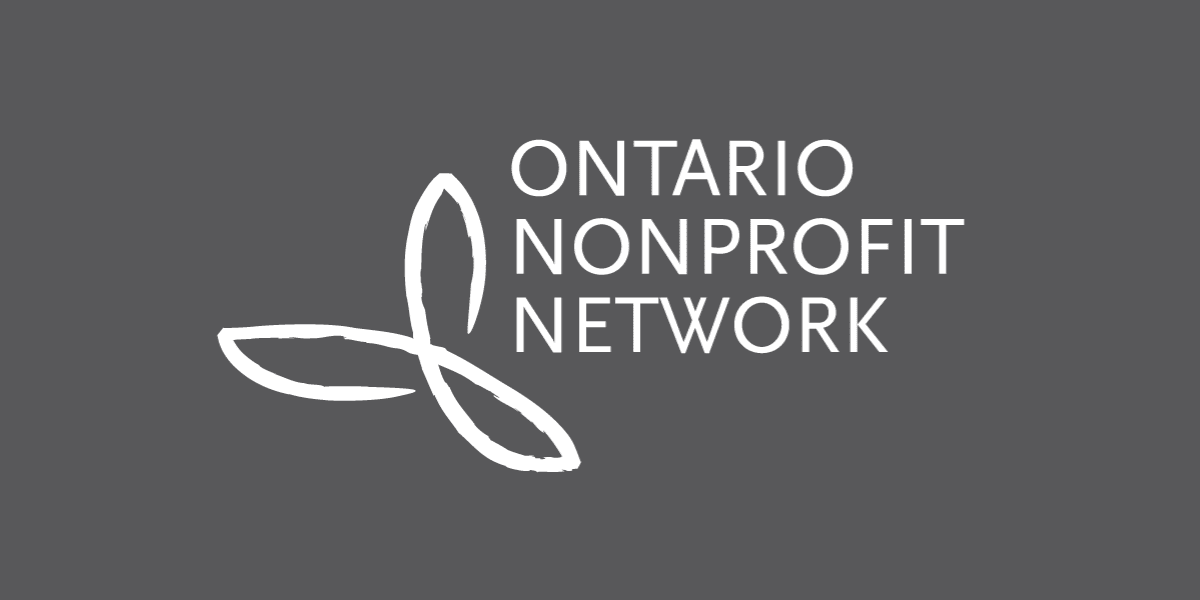
Blog
Casting light on decent work opportunities for young nonprofit workers
Nonprofit leaders who see a role for younger workers in the sector play a key role in making that vision a reality. This view-from-the-top perspective helps youth make room for themselves, says Emily Cordeaux, manager of grants and evaluation with Crohn’s and Colitis Canada.
As part of ONN’s ongoing engagement with young nonprofit workers, we asked Cordeaux to speak at a luncheon for decent work emerging leaders earlier this fall. “When nonprofit employers see young workers as part of the long-term vision for the sector, young people are much more likely to see a role for themselves as well,” she says.
Cordeaux points out that many young workers in the sector remain unaware of the full set of nonprofit employment opportunities available to them and inadvertently constrain their options. This is because project-based contract work, with its strong emphasis on deliverables and outcomes and deadlines, may unintentionally lead to a silo or tunnel-vision effect, shielding the worker from exposure to wider organizational opportunities.
As well, full-time staff may not be looping these contract workers into knowledge and growth opportunities in the wider organization due to this same blinkered understanding binding young workers to narrowly focused job responsibilities.
Cordeaux argues that nonprofit organizations don’t place enough priority on supporting advancement for staff. The nonprofit sector needs a committed and engaged labour force to continue tackling complex societal issues. This means organizations must actively decrease barriers for young people entering the nonprofit sector.
Where can nonprofits start to make effective change? Cordeaux suggests a few key actions:
- Only ask for job requirements that are necessary in your job postings. Make sure that entry-level job postings emphasize key competencies rather than exhaustively listing all possible skills and qualifications. This will encourage younger workers who are often stronger in transferable skills and experience to apply.
- Publicize salary ranges in job listings and increase pay transparency among staff. When salary ranges are disclosed on postings, job seekers have an easier time identifying whether they are an appropriate candidate and can afford to live on the salary being offered. This is a more efficient hiring process for both hiring staff and applicants.
- Formally recognize growth. Adopt formal ways of recognizing when an employee’s position has evolved and when they have assumed responsibilities they were not originally hired to do. Common ways of recognizing increased responsibilities include a title change and increased compensation. When resources are scarce, or when in doubt about how to recognize staff growth or achievements, consider asking staff for their preferred ways of being recognized.
- Foster and develop leadership. Leadership is an attribute that can be fostered and developed among nonprofit staff of all ages and career stages. Provide young workers with concrete opportunities to assume responsibility and practice leadership.
- Advocate on behalf of staff for better compensation. Seize opportunities to advocate on behalf of your team for better compensation. This means engaging funders in conversations about how their funding practices can support quality nonprofit jobs. It also means including equitable and competitive salaries in grant applications instead of lowball wages. These practices can help normalize pay equity throughout the sector.
Additional resources
In 2013, the Shaping the Future report highlighted the need to create a Human Resources framework for Ontario’s nonprofit sector. In 2015, the Change Work report shed light on the lack of fair compensation, job precarity and an increase in positions tied to limited term projects and funding. It also cited a lack of access to benefits and pension plan, and an under-investment in training and development, safety and equality in the workplace.
More recently, ONN has taken on building support for decent work across Ontario’s nonprofit sector, including a focus on decent work for women. Visit theonn.ca/decent-work for more information and to learn how you help build the movement.





